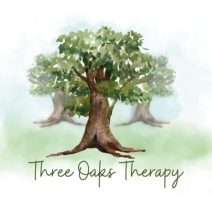Anxiety is a normal and healthy emotion that everyone experiences from time to time. However, when anxiety becomes excessive or interferes with daily life, it can be a sign of a mental health condition.
What is Polyvagal?
Polyvagal theory is a new way of understanding the nervous system and how it relates to anxiety. The theory suggests that the nervous system has three main branches: the sympathetic nervous system, the parasympathetic nervous system, and the dorsal vagal complex.
The sympathetic nervous system is responsible for the "fight-or-flight" response. When we are in danger, the sympathetic nervous system activates and releases hormones that prepare us to either fight or flee.
The parasympathetic nervous system is responsible for the "rest-and-digest" response. When we are safe and relaxed, the parasympathetic nervous system activates and helps us to calm down and restore our energy.
The dorsal vagal complex is responsible for the "freeze" response. When we are in danger and feel like we cannot escape, the dorsal vagal complex activates and helps us to shut down and conserve energy.
People with anxiety often have a heightened sensitivity to threats and danger. This can lead to the sympathetic nervous system becoming overactive and the parasympathetic nervous system becoming underactive. As a result, people with anxiety may experience symptoms such as racing heart, sweating, shortness of breath, and difficulty concentrating.
How can Polyvagal help?
Polyvagal theory can help us to understand anxiety and develop strategies for managing it. By understanding how the nervous system works, we can learn how to calm ourselves down and move into a state of safety and relaxation.
Here are some strategies for managing anxiety based on polyvagal theory:
- Identify your triggers. What are the things that make you feel anxious? Once you know your triggers, you can start to avoid them or develop coping mechanisms for dealing with them.
- Practice deep breathing. Deep breathing is a great way to calm the nervous system. When you breathe deeply, you send signals to the brain that you are safe and relaxed.
- Spend time in nature. Being in nature has been shown to reduce anxiety. The sights, sounds, and smells of nature can help to calm the nervous system and promote relaxation.
- Connect with others. Social connection is important for mental health. Spending time with loved ones can help to reduce anxiety and make you feel more supported.
- Get enough sleep. When you are sleep-deprived, your nervous system is more likely to be in a state of hyperarousal. Make sure to get 7-8 hours of sleep each night.
- Eat a healthy diet. What you eat can have a big impact on your mood and anxiety levels. Make sure to eat plenty of fruits, vegetables, and whole grains.
- Avoid caffeine and alcohol. Caffeine and alcohol can worsen anxiety symptoms. If you are struggling with anxiety, it is best to avoid these substances.
If you are struggling with anxiety, it is important to seek professional help. A therapist can help you to understand your anxiety and develop coping mechanisms for managing it.
Safe and Sound Protocol
Safe and Sound Protocol (SSP) is a type of neurofeedback that is used to treat anxiety and other mental health conditions. SSP works by using sound to help the brain regulate its activity. The sound waves are specifically designed to activate the parasympathetic nervous system, which is responsible for the "rest-and-digest" response.
SSP has been shown to be effective in reducing anxiety symptoms in a number of studies. In one study, SSP was shown to be as effective as medication in reducing anxiety symptoms in people with post-traumatic stress disorder (PTSD). In another study, SSP was shown to be effective in reducing anxiety symptoms in people with social anxiety disorder.
SSP is a safe and effective treatment for anxiety. It is a non-invasive treatment that does not require medication. SSP is also a relatively short treatment, with most people completing the protocol in a few weeks.
If you are struggling with anxiety, you may want to consider trying SSP. SSP can help you to reduce your anxiety symptoms and improve your quality of life, I am a therapist in Milton Keynes who specializes in treating anxiety using SSP. If you are interested in learning more about SSP or scheduling an appointment, please contact me.
